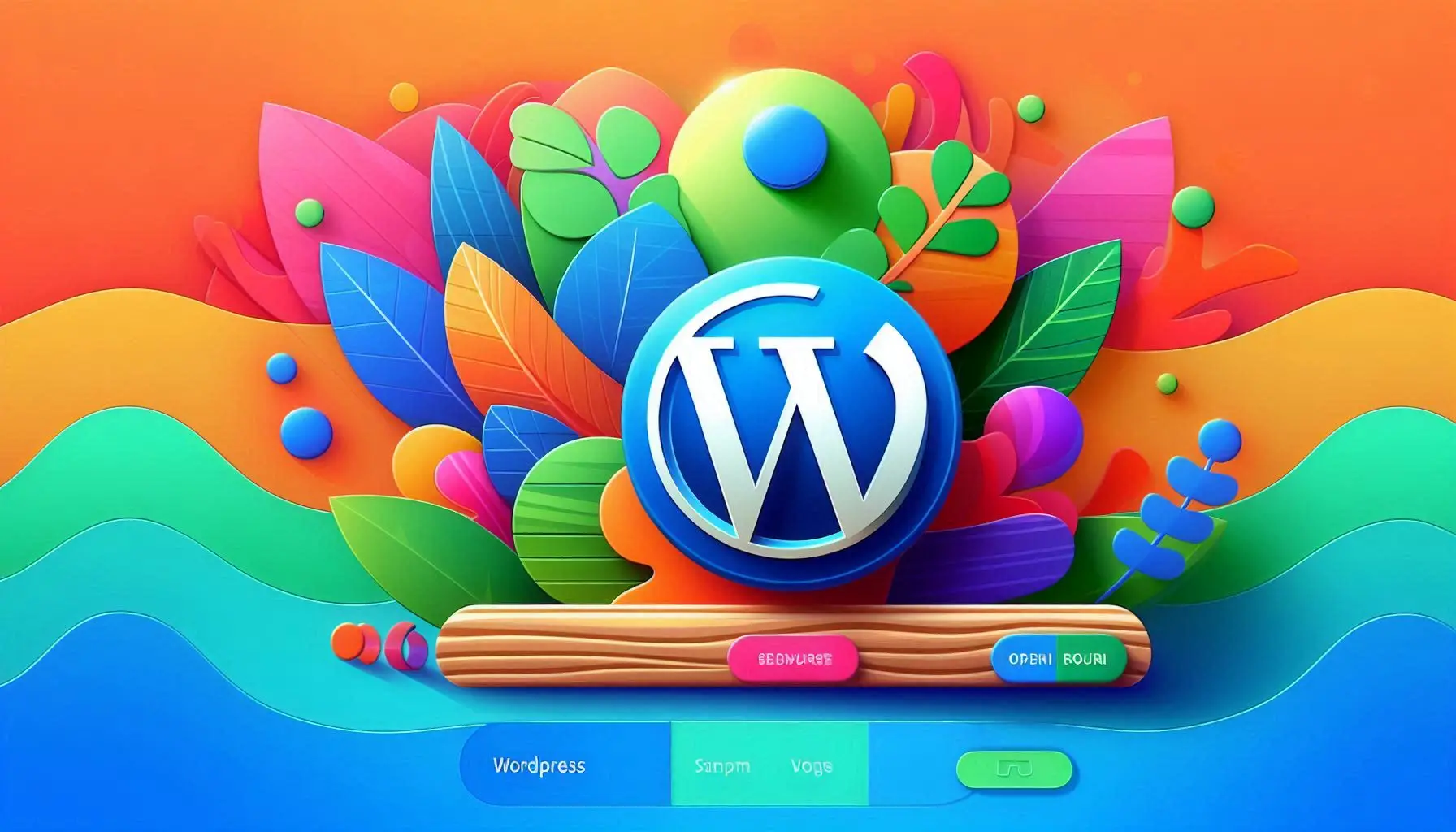The modern digital landscape has made the selection of the best blogging platform to make money a matter of importance for anyone interested in converting their passion for writing into a profitable venture. The best blogging platform should allow for creative expression but also monetization strategies that can lead to huge earnings. With so many options, knowing the strengths and weaknesses of each will empower aspiring bloggers to make informed choices.

Best blogging platform to make money
Of course, finding the best paid blogging platform may not be a simple task since there are many options available and everyone has a number of choices, so each presents certain features specific to its user base or needs, like customization options, user-friendliness, or scope for monetizing content through it. Therefore, a high degree of evaluation in the options is highly required to determine which one fits best to achieve your goals from your blog.
Here’s a comparative table that outlines the monetization abilities and features of WordPress, Wix, Blogger, and Medium. Each platform has its strengths and weaknesses, especially when it comes to monetizing content.
| Feature/Platform | WordPress | Wix | Blogger | Medium |
|---|---|---|---|---|
| Monetization Options | Extensive (ads, affiliate marketing, membership sites, e-commerce) | Good (ads, e-commerce, payment for services) | Basic (ads through Google AdSense) | Limited (partnership program, member subscriptions) |
| Ads Integration | Full control over ad networks and placement | Integrates with ads, but less flexible than WordPress | Easy integration with Google AdSense | Very limited options; can’t place external ads |
| E-Commerce Capabilities | Excellent (WooCommerce plugin, full range of products) | Strong (built-in e-commerce tools) | Minimal (can integrate with third-party solutions) | Not suitable for e-commerce |
| Affiliate Marketing | Yes, full flexibility to implement any affiliate programs | Allowed; can integrate affiliate links easily | Yes, but limited features | Not supported well; focus on original content instead |
| Membership Sites | Yes, via plugins like MemberPress and Restrict Content Pro | Possible but not as comprehensive | Not feasible | No support for memberships |
| Content Ownership and Rights | Owner retains all rights; fully customizable | Users don’t have complete ownership; more restrictions | Full control; however, Google owns the service | Content published becomes part of Medium; less control |
| User interface ease for monetization setup | Requires knowledge of plugins and customization | Simple drag-and-drop interface, more user-friendly | Simple but limited in options | User-friendly, but rigid with monetization |
| Analytics and Tracking | Google Analytics and other tracking plugins available | Built-in analytics; less detailed | Basic stats provided | Analytics available, conducive to understanding readership |
| Cost | Variable (hosting costs, premium themes/plugins can add up) | Monthly fee structure; costs can increase with features | Free, but limited capabilities for monetization | Free or paid membership; less direct monetization options |
Summary
- WordPress is ideal for those who want full control over monetization, e-commerce capabilities, and customizability but may require a learning curve for beginners.
- Wix provides an easy-to-use platform for building small business websites with decent monetization features without much technical expertise but comes with some limitations.
- Blogger is a basic, free option suitable for hobbyists, offering limited monetization features primarily through ads but lacking versatility.
- Medium focuses mainly on content quality and reader engagement rather than direct monetization, suitable for writers looking to reach an audience rather than generate profit directly.
Choosing the best platform ultimately depends on your goals, technical skills, and preferred monetization strategies!
WordPress.org: The Gold Standard

When it comes down to the matter of professional blogging for the sake of earning profits, WordPress.org is something of a prime pick on this list.
WordPress.org is a self-hosting site that puts all the controls into your own hands. This means the design can be made solely based on your preference as there are endless options. Secondly, the functionality is coming highly enhanced through the wide range of plugins available in the market. Moreover, the options include SEO-optimization tools and perhaps integrations for e-commerce, and the options could not be more open-end.
Monetizing your blog on WordPress.org is not that difficult; there are several methods available, including affiliate marketing and sponsored posts, digital products, and by running ads directly through Google AdSense or by partnering with brands.
There is a gigantic community for WordPress.org. Tutorials, forums, and more are there to help you solve any problems that crop up or learn new skills.
Wix: User-Friendly Design Meets Monetization
Wix is popular as a user-friendly web builder, and everyone from novices to advanced bloggers loves it.
Some of the key benefits include the drag-and-drop interface that makes quick design possible without coding. This is very handy for people who want to spend less time on technicalities and more time on content development.
As for monetization, Wix does offer a range of different options, which includes putting an online store on there, selling subscription, or even embedding advertisements. There is no equivalent in this regard to the customisation that WordPress.org would have, but the Wix catches up with that through the simplicity and usability it avails.
This site also comprises SEO tools in an attempt to increase their visibility thus attracting traffic for possible income
Blogger: A Launchpad for Beginners
Blogger, being owned by Google, is a great entrance for amateur bloggers into the world of blogging without any preliminary investment in terms of money.
Though it is really easy to use this tool of blogging, Blogger still has some essential features which can help you make money. Integration with Google AdSense makes it really easy to start earning ad revenue with no hassle from day one itself.
Another advantage of Blogger is that it has a simple process of setting up, which enables one to get his or her blogs up and running as soon as possible. This is a great platform for beginners who want to test the waters before committing to more advanced solutions. However, with the limited customization options, you may find it to be a drawback as your blogging journey progresses and you want to establish a unique brand.
Medium: A Community-Driven Approach
One more difference is that Medium stresses its focus on quality content as well as community engagement in preference to monetization channels.
Medium does not facilitate advertisements or affiliate links directly; however, it does operate a Partner Program where earnings are paid to the authors based on member engagement with a piece of writing. Under this model, bloggers work hard to produce high-quality content that will appeal to readers.
There is also the built-in audience for your posts on Medium, where you could get some kind of exposure, hopefully tapping onto some following who would love the style and flair of your writing. Being a blogger however, doesn’t give the same branding and layout power as say other websites, hence it probably best used for those content-driven with little business needs.
Best blogging sites in india to earn money
Certainly! Below is an explanation of the comparison between WordPress, Blogger, Medium, and Squarespace in terms of earning money through their platforms. This overview will help you understand the monetization options available on each platform, as well as their respective advantages and disadvantages.
Monetization Comparison Table
| Feature | WordPress | Blogger | Medium | Squarespace |
|---|---|---|---|---|
| Setup Cost | Free (WordPress.com), self-hosted (cost varies) | Free (Blogger.com) | Free (Medium.com) | Paid (monthly subscription required) |
| Ad Revenue | Yes (via ads, affiliates, etc.) | Yes (Google AdSense) | No direct ad revenue but can promote products/services | Yes (using code injections or third-party tools) |
| Content Ownership | Full ownership with self-hosted | Limited ownership (Google control) | Limited ownership (Medium control) | Full ownership |
| Customization | Highly customizable (with plugins) | Minimal customization | Limited customization | High customization with templates |
| Affiliate Marketing | Yes | Yes | Yes (limited options) | Yes |
| Subscriptions Memberships | Yes (via plug-ins) | Not directly | Yes (Medium Partner Program) | Yes (built-in) |
| E-commerce Options | Yes (WooCommerce, etc.) | Limited | No | Yes (built-in e-commerce features) |
| Ease of Use | Moderate learning curve (especially self-hosted) | User-friendly | Easy to use | User-friendly but needs some design knowledge |
| Community Engagement | Strong community support | Limited community interaction | Strong community engagement | Good community support |
Explanation of Key Features:
- Setup Cost:
- WordPress: Offers both a free version (WordPress.com) and a self-hosted option that requires a domain and hosting costs.
- Blogger: Completely free to use.
- Medium: Free and provides a platform for anyone to publish.
- Squarespace: Requires a monthly subscription.
- Ad Revenue:
- WordPress: Users can monetize through various ad networks and affiliate marketing.
- Blogger: Primarily uses Google AdSense for ad revenue.
- Medium: Does not support traditional advertisements; focuses on content quality.
- Squarespace: You can incorporate ads, but it may require additional coding or third-party integration.
- Content Ownership:
- WordPress: With self-hosted WordPress, users have full content ownership.
- Blogger: Content is owned by Google, with some limitations.
- Medium: Users do not fully own their content; Medium retains rights over published articles.
- Squarespace: Full ownership of your content.
- Customization:
- WordPress: Extremely flexible with thousands of themes and plugins.
- Blogger: Basic customization options (limited compared to WordPress).
- Medium: Minimal customization; focuses on readability and aesthetics.
- Squarespace: Offers beautifully designed templates with customization options.
- Affiliate Marketing:
- All platforms allow affiliate marketing, but methods and effectiveness may vary.
- Subscriptions Memberships:
- WordPress: Can implement membership features via plugins.
- Blogger: Does not support this directly.
- Medium: Has a Partner Program offering compensation based on reader engagement.
- Squarespace: Built-in features to manage subscriptions.
- E-commerce Options:
- WordPress offers robust e-commerce capabilities via WooCommerce.
- Blogger has limited options for e-commerce.
- Medium does not support e-commerce functionality.
- Squarespace has integrated e-commerce solutions.
- Ease of Use:
- WordPress can be complicated for beginners, especially self-hosting.
- Blogger is straightforward and user-friendly.
- Medium is easy to navigate and use.
- Squarespace is user-friendly but requires a basic understanding of design.
- Community Engagement:
- WordPress has a large support community for help.
- Blogger has limited community features.
- Medium emphasizes community reading and interaction.
- Squarespace offers good customer support but less community focus.
WordPress.com: A Versatile Option
Although WordPress.org is self-hosting, WordPress.com comes as a hosted solution which attracts many Indian bloggers.
WordPress.com has lots of plans that enable the user to make money on the blog through ads, e-commerce, and premium content. As it is pretty common in India, the familiarity will attract Indian bloggers to reach people.
However, the money can be earned only on a limited set of monetization methods unless you pay for the higher-tier accounts. That is a consideration if making money is your main goal.
BlogSpot: The Local Favorite
BlogSpot is very much liked by Indian bloggers; its simplicity and association with Google have made it even popular.
Starting a BlogSpot blog is quite easy; it barely takes a few minutes, and you can easily develop your blogs with minimum hassle. BlogSpot has flawless integration with Google AdSense. Therefore, users can use these ads to generate their earnings.
Although BlogSpot does not offer much scope for customization or advanced features, it is indeed a great starting point for bloggers. In fact, many Indian bloggers have emerged from BlogSpot to more vibrant platforms as they grow as bloggers.
Tumblr: Expressive Blogging with Community Engagement
Tumblr stands out as a microblogging platform that combines blogging with social networking.
For Indian bloggers focusing on creativity and visual storytelling, Tumblr offers a vibrant community where users can share ideas and engage with like-minded individuals. Although it may not be the first choice for conventional monetization strategies, bloggers can still leverage Tumblr’s audience to promote their brands and products.
The platform is especially beneficial for those in niche markets like fashion, art, and lifestyle, where visuals play a significant role in attracting readers and potential buyers.
Quora Spaces: Expanding Horizons
Quora Spaces is a relatively new addition to the Indian blogging landscape that offers innovative opportunities for content creators.
Creating a Space allows bloggers to share their knowledge and insights and engage communities interested in specific topics. Earning directly from Quora may not be a primary focus, but exposure gained can lead to other monetization strategies such as affiliate marketing and consulting services.
This helps users in creating authority in their niche, as well as finding potential clients or partners.
Best free blogging platform to make money
For bloggers who are just starting and may not want to invest upfront, identifying the best free blogging platform to make money is critical. These platforms offer valuable opportunities for budding writers to showcase their work and build an audience without any initial costs.
Conclusion
The best blogging platform for money depends on what works best for you: what goals you want to set up, the level of your technical skills, and what level of customization is involved. Each one will work differently, and finding the one that suits your idea is crucial.
Whether it’s WordPress.org with its flexibility or more straightforward options like Blogger and Wix, you are simply focused on remaining devoted to content creation that actually relates to people.
The platform you decide on is just a tool; your commitment to your craft, and then your ability to connect with readers, are what’ll make the success happen. So, take this time to remember it takes patience, persistence, and an openness to learn and change as you try to construct a successful blog.
FAQs about the Best Blogging Platform for Money
What is the best blogging platform for making money?
The best blogging platform for making money typically depends on your needs, but popular options include WordPress, Wix, and Blogger. Each offers various monetization features and can be tailored to your specific goals.
Can I monetize my blog on free blogging platforms?
Yes, you can monetize your blog on some free platforms like Blogger and Medium. However, your options may be limited compared to self-hosted solutions like WordPress where you have more control over ads and affiliate marketing.
How can I make money from my blog?
You can make money from your blog through several methods, such as affiliate marketing, sponsored posts, ad revenue (like Google AdSense), selling digital products, or offering online courses and services.
Is it necessary to have my own domain name to earn money from blogging?
While it’s not strictly necessary, having your own domain name can enhance your brand’s credibility and professionalism, making it easier to attract an audience and potential advertisers.
What are the costs associated with starting a blog?
Costs can vary based on the platform you choose. Self-hosted options like WordPress usually require payment for hosting, a domain name, and possibly premium themes or plugins. Free options have minimal to no initial costs but may have limitations.
How long does it take to start earning money from blogging?
Earning money from blogging varies greatly among individuals and can take anywhere from a few months to several years depending on factors like content quality, niche selection, and marketing efforts.
Should I choose a free or paid blogging platform for monetization?
Paid platforms often provide more flexibility, customization, and features that facilitate monetization, making them a better choice if your goal is to earn money. Free platforms tend to have restrictions that might limit your earning potential.
Are there any specific niches that are more profitable for blogging?
Certain niches, such as finance, health, travel, and technology tend to attract more audience interest and higher advertising rates, making them potentially more profitable for bloggers.
